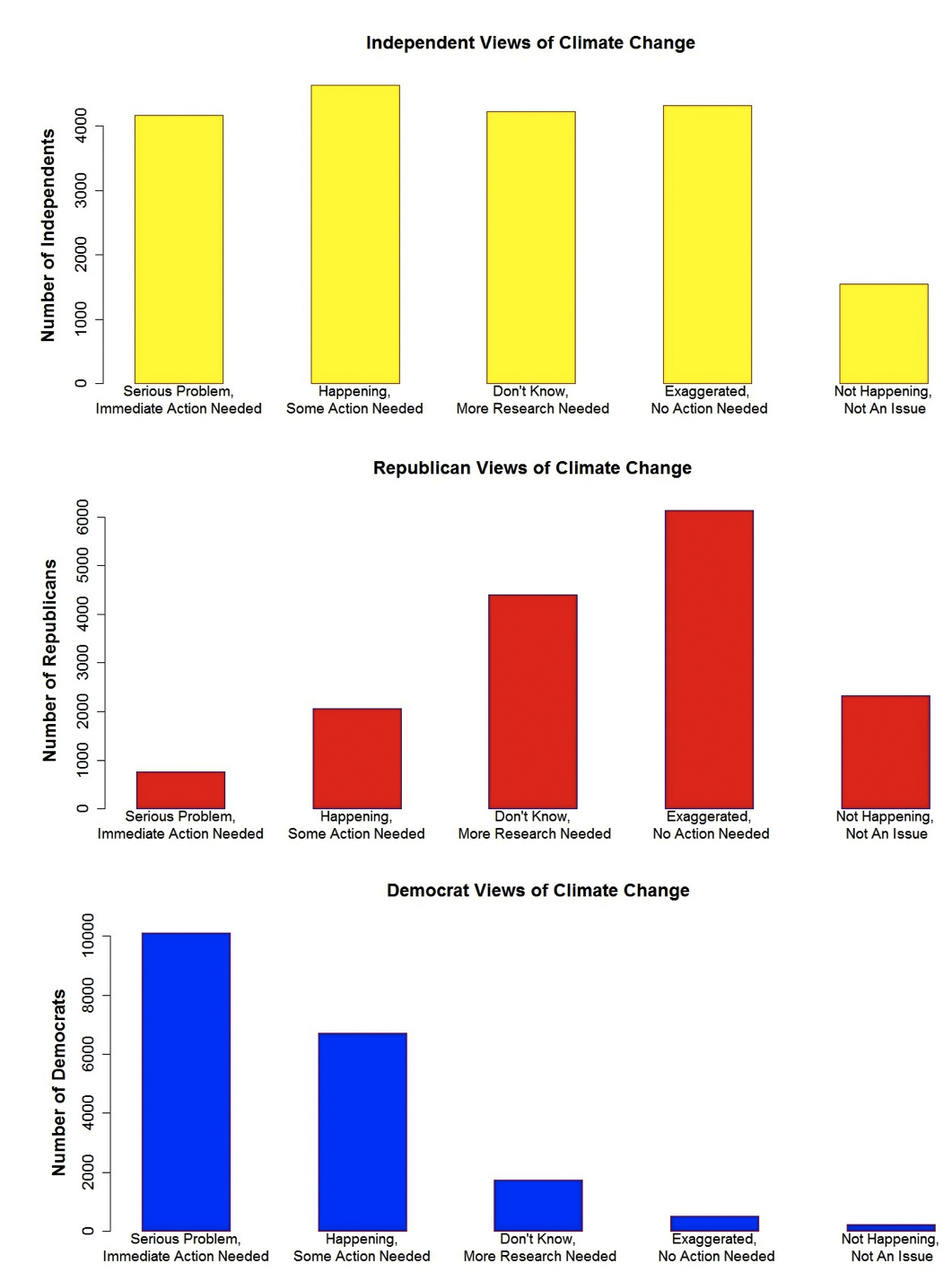Amid Partisan Paralysis, Climate Marches Planned Across U.S.

On September 21, concerned citizens and global thinkers will collaborate in order to bring local, national, and international leaders into the fold of environmental stewardship by marching worldwide. A San Diego chapter, SanDiego350, organized a local march to show solidarity for the national march in New York. They are scheduled to coincide with the arrival of world leaders for the UN Climate Summit on Tuesday.
SanDeigo350, a coalition of local citizens, wants one thing above all else: they want local elected officials to understand the urgency required for developing and implementing a strong Climate Action Plan that returns the planet to a safer carbon quota -- 350 parts per million (ppm) of CO2.According to the EPA, CO2 emissions have increased 5.4 percent from 1990 to 2012 and now stand at 400 ppm. Dwain Deets, the media interface volunteer with SanDiego350, says public awareness of the danger is lagging behind that of younger voters.
“People in general in the U.S. are not much aware. It is quite abstract for the general public, not something that comes in through their senses in every-day life.” He added, “The younger generations are more aware, as they learned about it in high school.”
If CO2 in the atmosphere continues to rise over 400 ppm, experts predict numerous negative consequences, including: increased Earth temperatures, changes in precipitation patterns, rising sea levels, and increased ocean acidity. The economic effects could be detrimental as well, meaning increased risk of water and food scarcity, as well as a strained infrastructure.
Attitudes on Climate Change by Party Affiliation / Credit: Inside SourcesYet, solutions to growing concerns on the climate aren't moving very fast in Congress.
"The effects have been devastating," said Deets. "Congress has provided no legislation beneficial to transitioning away from fossil fuels.”
SanDiego350’s goal of reducing greenhouse emissions to 350 ppm from 400 ppm would require a firm budgeting of oil reserves and large-scale implementation of renewable energy sources.
To combat rising CO2 levels, SanDiego350 proposes a rapid transition to renewable energy sources, the creation of jobs to maintain efficient renewable energy sources, and the reduction of CO2 emission to a sustainable 350 ppm.
When it comes to the climate, the partisan divide between congressional Republicans and Democrats is stark. According to a recent analysis by Inside Sources of data compiled from the 2010 Cooperative Congressional Election Study (CCES), the relationship between party affiliation and attitudes on climate change are highly correlated (see graph).
The analysis found:
"The primary reasons that Americans have divergent opinions on climate change are partisanship and ideology."
Those identifying as Republican were much more likely to view climate change as 'exaggerated' and requiring no action. Democrats, on the other hand, were most likely to view it as a 'serious problem.' Independents' attitudes were much more evenly distributed.
Large scale actions taken by concerned citizens like SanDiego350 require more than a cursory glance. It is possible to not only support our economy but protect our environment. Climate change and other environmental issues are global issues that should not fall victim to petty political divisions.
Photo: UN Headquarters in New York / VirtualTourist.com




